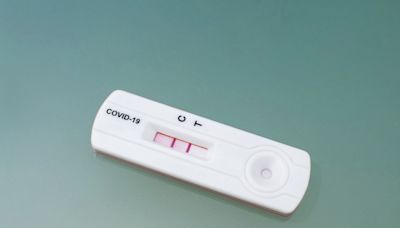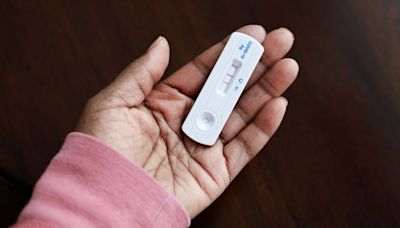Search results
Dec 11, 2023 · When Is COVID Most Contagious? The point at which you’re most likely to spread COVID to others—that is, peak infectivity of the virus—varies from person to person, Linda Yancey, MD, an infectious disease specialist at Memorial Hermann Health System in Houston, told Verywell. The crucial factor is symptom onset. That’s the time when you ...
Jan 7, 2024 · When Is COVID-19 the Most Contagious? Researchers estimate that people who get infected with COVID-19 can spread it to others 2-3 days before symptoms start and are most contagious 1-2 days before ...
May 3, 2024 · The contagiousness of COVID-19 can vary, but people with mild or asymptomatic illness are usually no longer contagious after 10 days. People with moderate to severe illness or who are moderately to severely immunocompromised may remain contagious for 10 to 20 days or even longer. 20 Sources. By James Myhre & Dennis Sifris, MD.
- How Long Is Someone with Covid-19 Infectious?
- What Is Viral Shedding?
- When Do You Become Contagious After Exposure to Covid-19?
- When Do You Stop Being Contagious If You Have Covid-19?
The short answer is that you’re contagious with COVID for about 10 daysafter you have symptoms or test positive. The full answer is more complicated. The 10-day mark seems to apply to people who have mild to moderate COVIDillness. People with severe cases of COVID illness can remain infectious for several weeks or months. There’s also evidencethat ...
Viral sheddinghappens when a sick person releases copies of a virus from their body. Large numbers of viruses are shed when a sick person coughs or sneezes. But viruses can also be shed when you talk, cry, or breathe. Viral shedding is how viruses spread from person to person. People typically shed the virus that causes COVID for about 10 days, sta...
It’s possible to become contagious with COVID-19 on the same day you are exposed. Most people who get sick with COVID begin noticing symptoms about 2 to 14 daysafter exposure. But viral shedding can begin right away. That’s why it’s possible to spread the virus that causes COVID even before your symptoms start. Of course, not everyone who gets expo...
It depends. If you have a mild illness and your symptoms are getting better, you’re probably no longer contagious after 10 days. On the other hand, if you have a severe illness or a weakened immune system, you can be contagious for much longer. But if you’ve been fully vaccinated against COVID, you may be contagious for a shorter period of time. It...
Jul 23, 2021 · The medical term for this period is presymptomatic infection. COVID-19 is most contagious in the first week after exposure to the virus. Symptoms will typically develop during this week, around 4 ...
- Aaron Kandola
Mar 15, 2024 · A: People with COVID-19 could potentially transmit it to others well beyond a day after developing symptoms or testing positive. New guidance from the CDC advises people to isolate until they have ...
Apr 9, 2024 · COVID-19 (coronavirus disease 2019) is a disease caused by a virus named SARS-CoV-2. It can be very contagious and spreads quickly. Over one million people have died from COVID-19 in the United States. COVID-19 most often causes respiratory symptoms that can feel much like a cold, the flu, or pneumonia. COVID-19 may attack more than your lungs ...




